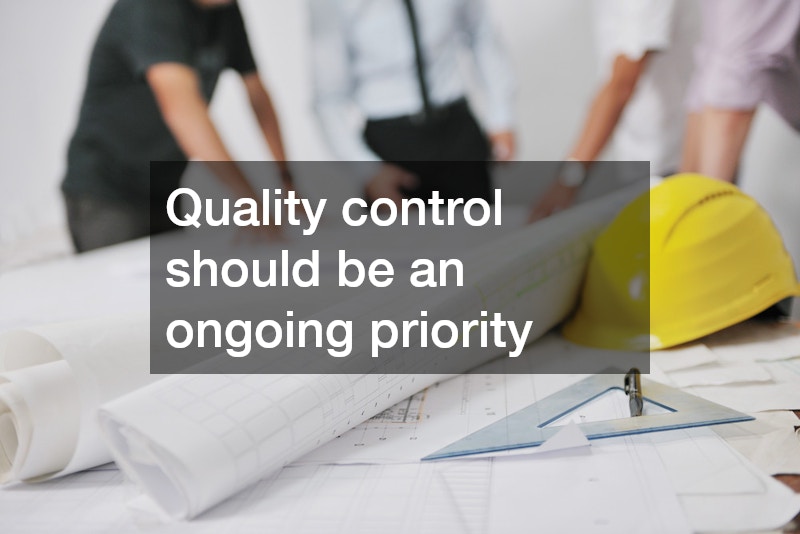
Planning a commercial construction project can be an exciting yet challenging endeavor. Whether you’re developing office spaces, retail centers, or industrial facilities, careful planning is critical to ensure the project runs smoothly, stays within budget, and meets deadlines. Commercial construction involves numerous moving parts, from budgeting and permits to materials and labor. By following a strategic approach, you can minimize risks and maximize efficiency.
1. Define Your Project Goals and Scope
The first step in any commercial construction project is to clearly define the project goals and scope. This includes understanding the purpose of the building, the required size, and any special design considerations. A well-defined scope will help you communicate effectively with contractors and stakeholders and avoid costly changes later. Consider creating a detailed project brief that outlines all essential elements, including functional requirements, aesthetic preferences, and sustainability goals.
2. Develop a Realistic Budget
One of the most critical aspects of commercial construction planning is budgeting. Accurately estimating costs early can prevent financial surprises and help secure financing if needed. Include all aspects of the project in your budget, such as labor, materials, permits, design fees, and contingencies for unexpected expenses. Engaging with a professional estimator or commercial construction consultant can provide valuable insight and ensure your budget reflects current market conditions.
3. Choose the Right Team
Successful commercial construction depends on assembling a skilled and reliable team. This includes architects, engineers, contractors, and project managers who have experience in commercial projects. When selecting contractors, verify their credentials, previous projects, and client references. Communication and collaboration among your team members are crucial for timely decision-making and problem-solving throughout the construction process.
4. Secure Permits and Approvals
Before breaking ground, it’s essential to obtain all necessary permits and approvals from local authorities. Commercial construction projects often require multiple permits, including zoning approvals, environmental clearances, and building permits. Failure to comply with regulations can lead to delays, fines, or even project shutdowns. Work closely with your contractors and local authorities to ensure all legal requirements are met before starting construction.
5. Plan for Site Logistics
Efficient site logistics can significantly impact the success of a commercial construction project. Consider factors such as site access, storage of materials, worker safety, and equipment placement. Proper planning can prevent bottlenecks, reduce downtime, and minimize risks of accidents or property damage. A well-organized construction site also helps keep the project on schedule and improves overall productivity.
6. Focus on Quality Control
Quality control should be an ongoing priority throughout commercial construction. Implementing regular inspections and checkpoints ensures that construction standards are met and potential issues are identified early. High-quality construction not only enhances the durability and functionality of the building but also protects your investment. Work with your team to establish a clear quality control plan and maintain thorough documentation of all inspections and approvals.
7. Incorporate Sustainability
Modern commercial construction projects increasingly emphasize sustainability and energy efficiency. Incorporating environmentally friendly practices, such as using recycled materials, efficient HVAC systems, and energy-saving lighting, can reduce long-term operating costs and appeal to environmentally conscious tenants or buyers. Discuss sustainability goals with your architects and contractors early to integrate green solutions seamlessly into the project design.
8. Prepare for Risk Management
Commercial construction projects carry inherent risks, including delays, cost overruns, and unforeseen site conditions. Developing a comprehensive risk management plan can help you anticipate potential challenges and establish contingency strategies. This includes maintaining adequate insurance coverage, planning for schedule buffers, and creating protocols for handling unexpected issues. Proactive risk management is key to keeping your commercial construction project on track.
9. Communicate Effectively
Effective communication is vital for the success of any commercial construction project. Regular meetings, progress reports, and updates help ensure everyone is aligned and informed. Open communication with stakeholders, including investors and future occupants, helps manage expectations and fosters collaboration. Using digital project management tools can streamline communication and provide real-time tracking of tasks and milestones.
Planning a commercial construction project requires careful preparation, strategic thinking, and attention to detail. From defining project goals and budgeting to selecting the right team and managing risks, each step plays a crucial role in the success of your project. By following these top tips, you can reduce potential pitfalls, enhance efficiency, and achieve a high-quality outcome. Whether you are developing a new office building, retail center, or industrial facility, proper planning ensures that your commercial construction project is completed on time, within budget, and to the highest standards.




